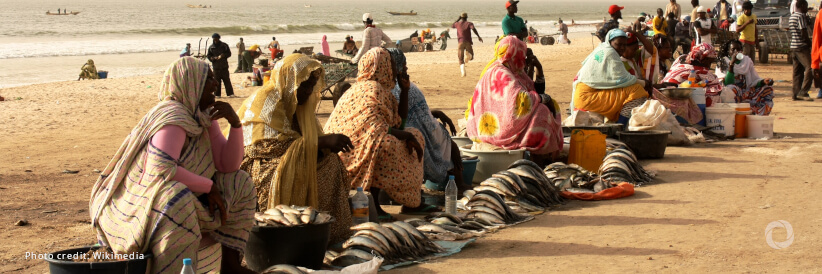A high-level joint mission of the European Parliament Committee on Development (DEVE) and the UN World Food Programme (WFP) concluded, reaffirming their shared commitment to scale up investments in resilience and development efforts to respond to the rising humanitarian needs in Mauritania.
On 27 and 28 May, senior representatives from DEVE, WFP, UNICEF, IOM, UNHCR and other NGO partners visited the EU funded project sites in the Hodh Ech Chargui region, southeastern Mauritania. They saw firsthand the impact of ongoing humanitarian support to Malian refugees and resilience building initiatives targeting the vulnerable.
The visit comes as Mauritania faces high levels of food insecurity, recurring climate shocks, and the continued influx of refugees from Mali. Some 594,000 people or 12 percent of the population are projected to face acute food insecurity between June and August 2025, according to the latest Cadre Harmonisé food security analysis. The country is also hosting over 288,000 refugees, including 118,000 in Mbera camp, who rely heavily on humanitarian assistance for survival.
“This visit highlights the importance of sustained partnerships in addressing the root causes of vulnerability while investing in hope, dignity, and resilience through durable solutions.” said Aliou Diongue, WFP’s Country Director and Representative in Mauritania. “We are delighted to support the Government of Mauritania and work with the European Union, one of our largest donors to build long-term food security and enhance stability in Mauritania”.
During the mission, delegates listened to refugees and local farmers benefitting from land rehabilitation projects, income-generating initiatives, school meals and malnutrition prevention. The EU delegation emphasized the urgent need for a more integrated and efficient approach linking humanitarian aid, development and peacebuilding efforts to ensure long term resilience and stability in Mauritania and along its borders.
“We are here to observe and to listen so that we can understand better what is needed for an effective response in a context of pressure from refugee arrivals, climate crisis and insecurity. The EU is working on an integrated and more efficient approach to better link humanitarian and development efforts, and it is important for us to cross-check this on the ground,” said Ms. Hildegard BENTELE, chair of the DEVE delegation. “The testimonies we heard—from refugee women managing small businesses to farmers reclaiming degraded land—and information we received speak to the power of partnership and the tangible impact of EU solidarity. We leave with a renewed sense of responsibility to advocate for continued support.”
The delegation reiterated the need for urgent and sustained investments and increased international attention to Mauritania and its bordering regions as humanitarian needs soar.
“The EU is committed to supporting Mauritania as a key partner for peace and development in the Sahel,” said Joaquin Tasso Vilallonga, Ambassador of the European Union to Mauritania. “Our collaboration with the Government and other actors, including WFP, ensures that assistance is not just efficiently delivered, but also strengthens social cohesion, as we run our interventions through a territorial integrated approach.”
So far in 2025, WFP has reached 252,000 people in Mauritania with lifesaving and lifechanging assistance including refugees, and vulnerable communities. WFP rehabilitated 1,700 hectares of land, promoted water harvesting initiatives, provided school meals to 51,000 children and targeted nutrition support for pregnant and breastfeeding women and children under five.
WFP’s is supporting communities to recover from shocks and building a more food-secure and self-reliant future.

